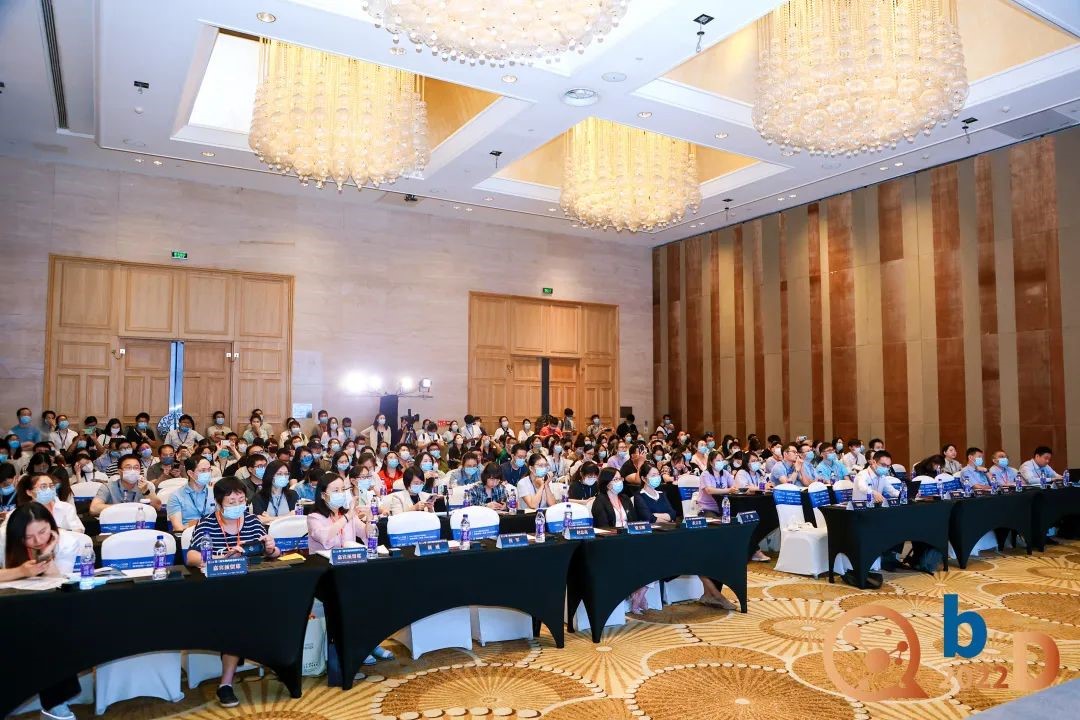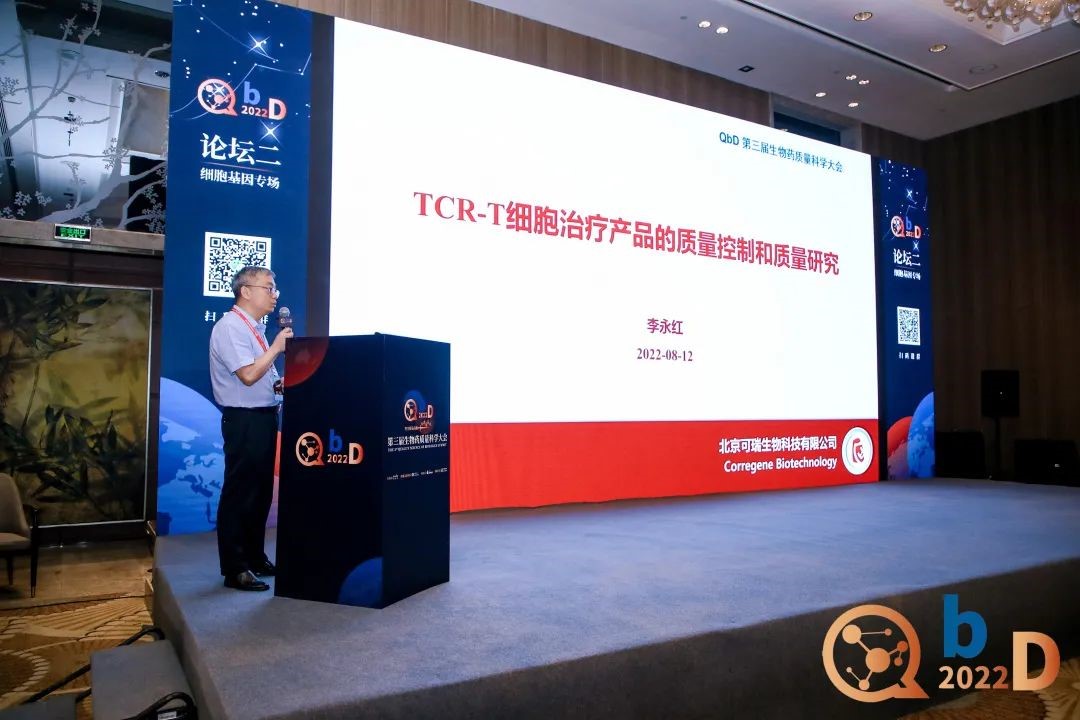

Date:2022-08-16 10:52:00 Browse:
On August 12, 2022, the "QbD 2022 The 3rd Quality Science of Biologics Summit" was solemnly held in Beijing. The summit was sponsored by Biovalley, CO and organized by GenScript ProBio, with strategic support from CorreGene and support from CQAP.

With the theme of "Sticking to the Quality Highland and Aiming at Internationalization," this conference invited more than 60 leaders in the biopharmaceutical industry from well-known pharmaceutical enterprises at home and abroad, as well as CRO/CDMO leading enterprises, institutions, universities, and other relevant organizations, attracting more than 1,500 industry participants.
Four parallel forums were set up at the conference, covering four aspects: antibody drugs, cell and gene therapy, global pharmaceutical policies, and pharmacopoeia and new methods interpretation. The participants discussed the development of quality and safety of domestic biological drugs, as well as how to help domestic enterprises improve the quality of drugs, construct quality management systems, and achieve international standards.

Strategic partners
At the conference, notable entrepreneurs and industry experts delivered over 50 outstanding keynote speeches, sharing advanced concepts in quality management, valuable practical operational experiences, and engaging brainstorming discussions with attendees.
Dr. Yonghong Li, the CQO of CorreGene, presented a conference report titled "Quality Research Strategy of TCR-T Cell Therapy Products" to guests at the Cell and Gene Therapy Quality Forum sub-forum II. During the presentation, Dr. Li discussed the progress and perspectives of TCR-T cell therapy products in research and development, production processes, and quality control.

01 Research and Development Status of TCR-T Cell Therapy Products
TCR-T cell immunotherapy is an advanced biological therapy that can kill tumors by expressing T cell receptors (TCRs) on the surface of T cells that can specifically recognize tumor cells.
CorreGene has established leading platforms for TCR discovery and optimization. The TCR discovery platform can support the acquisition of TCRs for various optimal targets on a large scale and at low cost. In particular, the SMART-TCR affinity optimization platform, a revolutionary TCR affinity optimization technology, has greatly improved the success rate and efficacy of TCR affinity optimization and broken down the barriers to developing TCR innovative drugs. At the same time, technologies such as the established whole genome epitope library, single HLA cell library, and X-Scan are used to eliminate off-target effects and obtain candidate TCR sequences with guaranteed effectiveness and safety in the early R&D stage.
02 Production process of TCR-T cell therapy products
The production environment for T cell therapy adopts an overall C-level matching cell therapy isolator to reduce environmental operation and maintenance costs. VHP sterilization, dust particle monitoring, and other methods are used to avoid the risk of connection operations. The production process uses a closed system and highly automated equipment that meets the demands of localizing and achieving high autonomy of key equipment.
The production process research is carried out based on the concept of QbD. We have finally obtained an excellent production process that can realize efficient amplification, excellent phenotype, high TCR positive rates, and accurate monitoring of the amplification process.
03 Quality control of TCR-T cell therapy products
According to the relevant guidelines for immune cell therapy products, CorreGene has established a quality control system that covers the entire production process of the company's products. This system includes identification, biological potency, content, purity, impurities, microbial contamination, and routine inspection items for preparations. The aim of this system is to ensure the safety, effectiveness, and quality of the products.
04 Key points and difficult points of TCR-T cell therapy product quality research
The challenges in evaluating the efficacy of autologous cell therapy products mainly arise from the variability and complexity of samples, the limited sample size available for analysis, the limited stability and viability of cell therapy products, the difficulty in accurately quantifying detection methods, and the lack of appropriate reference standards. Therefore, the development and validation of analytical methods and the establishment of quality standards need to be scientifically and reasonably carried out in combination with the specific conditions of different stages of research and development.